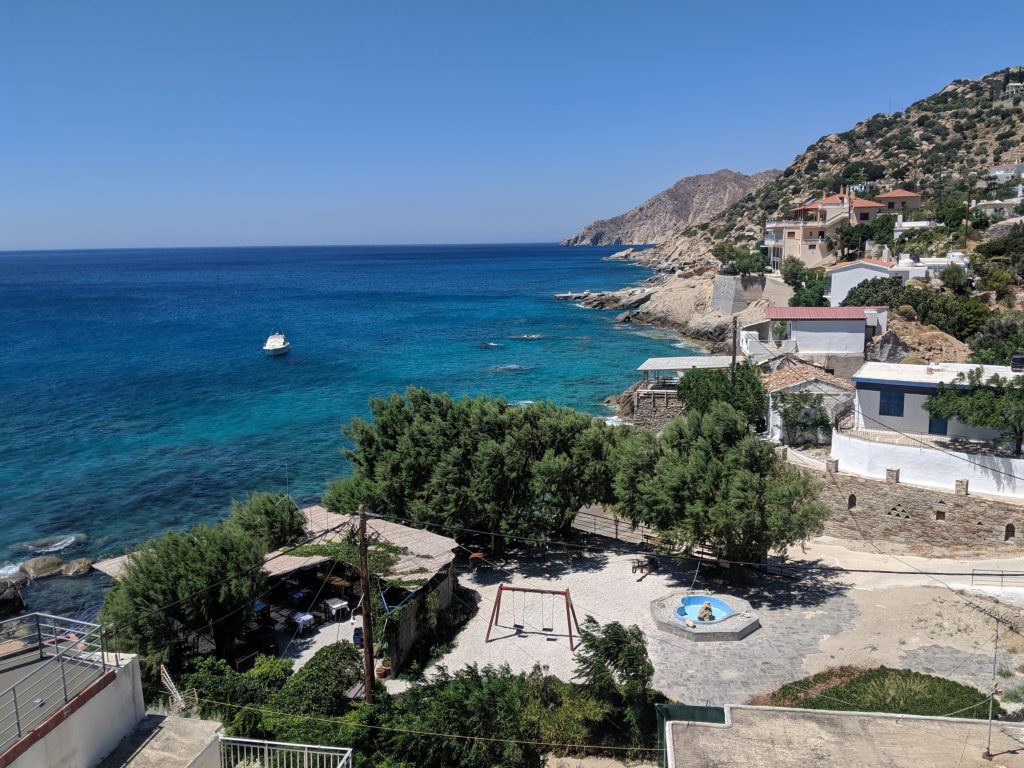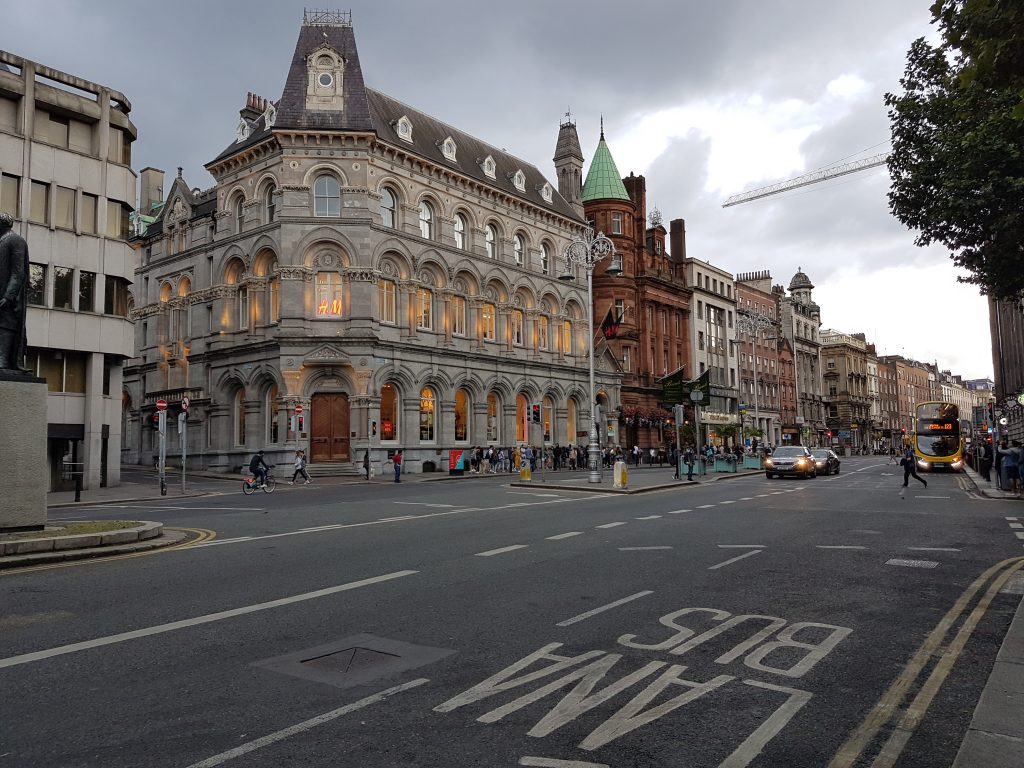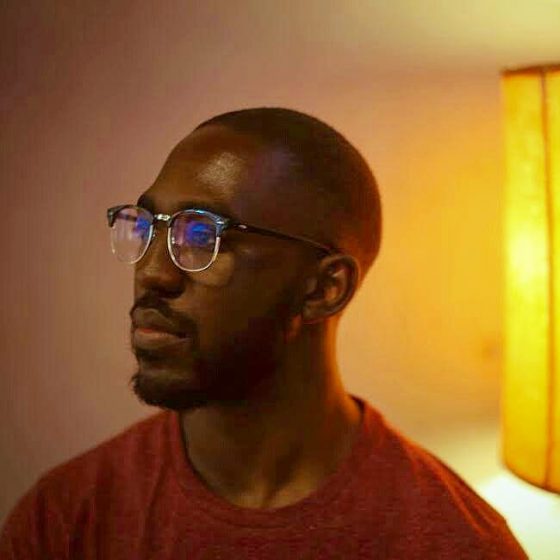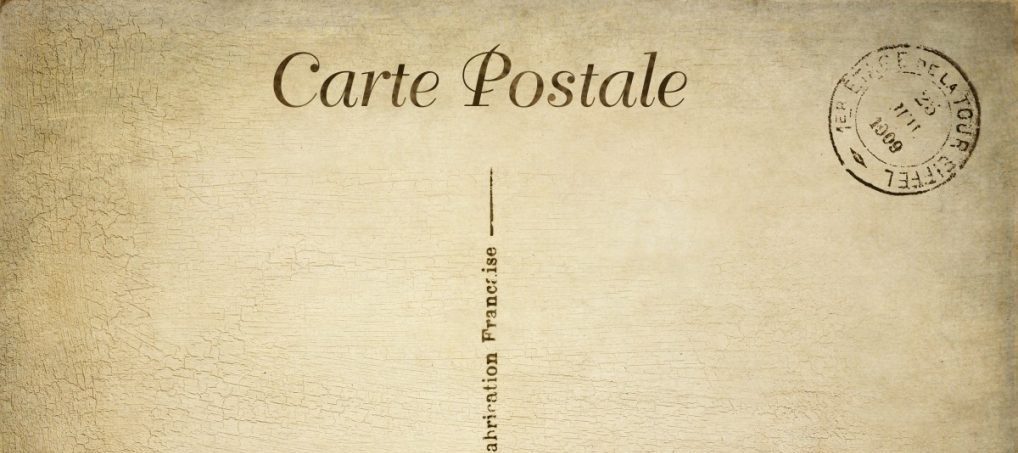The summer took our treasured MQR Readers all over the globe. Here are their notes from their journeys.

New Luggage, Clean Underwear
I don’t travel much. Last Spring, I splurged and bought my first carry on piece of luggage. So, it would come as no surprise that I’ve never been to Europe nor have I ever had an airline lose my luggage before. This summer I had both happen to me, of course, at the same time, on the same trip. With only my backpack and the clothes I was wearing, I had to clumsily learn how to navigate Barcelona, Paris, Amsterdam, Brussels, and London during the hottest days ever recorded in their history. The old cliché of plan for the unexpected is a cliché because, at least in my experiences, it seems to always happen. Plans are hardly ever straightforward. On top of not having any of my personal belongings in a foreign place, the trip wasn’t without more of the unexpected. In Barcelona, it was speaking broken Spanish to locals at 1 A.M. to try to find a hotel after my friend lost the keys to our AirBNB. In Amsterdam, it was our train breaking down on the way to Belgium with no replacement plans given to us. And in Brussels, it was the top floor of our train car hostel with no ventilation on the hottest day in Belgian history. This summer, I learned to not check a bag while traveling internationally. I learned that a pair of clean underwear can sometimes be the most important thing in the world. And I learned that the idea of straightforwardness is a concept that doesn’t really exist while traveling.
— Justin

Justin Balog is a writer and arts administrator from Beach Park, IL. He holds a BS in Biology and English/Creative Writing from the University of Wisconsin–Madison and is currently an MFA candidate in poetry in the Helen Zell Writers’ Program. You can find him retweeting other peoples clever and witty tweets on Twitter @aybaebalog, or on Instagram @aybaebalog trying to make his life look more interesting than it actually is.

I’m Hungry, I’m Tired, I’m American, I Don’t Understand Greek But I’m Learning
In 2015, I first visited the Greek island Ikaria with my partner and very little Greek at my disposal.
My partner has been speaking Greek since his early teenage years, his fluency acquired over years of annual trips to his family’s hometown, the fishing village Karkinagri. (A name which roughly translates to Crabtown, a fact I love.) On the long trip there, he phonetically spelled out words and phrases for me. I remember the 6+ hour ferry from Athens to the island, how I shuffled my notecards and tried to anticipate what combinations I’d have to produce on the fly—not unlike my French oral exam in college. Most were declaratives: I’m hungry, I’m tired, I’m American, I don’t understand Greek but I’m learning, I am here with Lou’s son Tzames (even his name is different in Greek, what with the language lacking a J).
I didn’t return to Ikaria until this July. In the intervening four years, I had given up Greek and taken up German to prepare for my move there in a year, to join my partner as he earns his PhD. I returned with less Greek, no notecards, and no intentions of brushing up on the odd consonants and syntax.
Sure, I was conflicted about returning with no more Greek competency or plan to learn any time soon. On our long way there—several planes, two layovers, a ferry, and a car ride from the port city to Karkinagri—I fought feeling defensive of or disappointed in myself. I wished these past 4 years could see me return more integrated in my partner’s culture.
Ikaria is special—remote, strange, and proud. The island is named for Icarus, who supposedly fell in the waters just off the island’s shore when his wings melted; a statue of him is erected in the capital’s pier. It’s also well-known as “the island where people forget to die,” as coined by CNN, due to the advanced life expectancy of its residents. In 1912, the island broke free of Turkish rule and established itself as the Free State of Ikaria. It functioned as a fully independent country with its own government and army for five months before the island was absorbed into the Kingdom of Greece. For many Greeks, Ikarian or no, this rebellion is symbolic of national pride. I am one of many who bought a t-shirt printed with the Ikarian flag while waiting for the return ferry in Evdilos. Ikaria is not a tourist-heavy island like Mykonos or Santorini; I was one of few outsiders in Karkinagri during my stay. Though English instruction is widespread in the younger generations, I didn’t want to force the Ikarians I met, often coming in for the summer from the mainland or America, to accommodate me in the only place they could be fully Ikarian.
I knew just enough to be polite, which is more than some visitors bother with. On my last trip, I witnessed the American girlfriend of one of my partner’s peers learn how to say “thank you”—Efharistó–on the last day of their own 2-week stay in the village. I was so afraid to be that American visitor.
But two weeks would not be enough to rekindle and grow my Greek skills, not if I wanted to ultimately learn German first.
On either side of my time in Greece, I spent a few days in Germany with my partner, learning in earnest from interactions and talk around me. Once on the island, I caught myself saying ‘schuldigung instead of sygnomí when excusing myself through a narrow walkway. At a café by the water, I took my crepe from the owner Bloko: “Danke!” No, wait. I shook my head as if to get the German out. “Efharistó!”
“Entáxei,” he said cheerfully, unbothered. Okay. And he asked me if I was enjoying the island.
“Naí, ómorfi!” Yes, beautiful.
He took one of my hands in both of his and shook. “Bravo!”
This is how it went, my entire stay in Karkinagri. I would flub somehow or stand mute, smiling, while my partner translated, and the Ikarians would default to what they truly cared about: whether or not I loved Ikaria. I quickly learned that’s all they wanted from me. I joked the only Greek word I needed to know was nóstimos, delicious. Bravo! I even got a nice story to tag onto the joke, once I accidentally called the chef delicious—not the souvlaki. (Gendered adjectives are just as annoying in Greek as German.)
When I drank the Ikariotissa, a new beer brewed on the island, we clinked glasses. Bravo! When I danced the Ikariotiko, the village line dance with no less than three versions, they couldn’t have been more delighted I could keep up in the tightening spiral of arm-linked people. Bravo! The figs, the honey, the lemonade, the fish—every food I had, I loved, and I let them know it. Bravo! I tried my best to remember which aunt (theía) was which and related how, but they reminded me anyway. Theía after theía, when they saw my ring, wished my partner and I a wonderful wedding and marriage. Bravo! From time to time, before they spoke with me, Ikarians would ask my partner if his fiancée was Greek. I thought: Bravo!
For all that, I was definitely ribbed for not speaking Greek.
“She insists on speaking English!” One Yannis joked, the one I remember as John from Houston because he introduced himself that way.
I jabbed a thumb at my partner. “Ask him why!”
I was not easily understood, and I didn’t fully understand anyone around me either. I spoke some English with the stronger English speakers who wanted to practice, but mostly I contented myself with being a fly on the wall. Not as active a participant as I want to be on future trips, but involved enough and warmly welcomed. Last time, I had been so preoccupied with proving I belonged there that I didn’t connect with people as much as I thought I had. This time I made a lot more eye contact, laughed and joked more with the generous translation of my partner, stopped thinking in obsessive English-Greek parallel translation and actually listened. With that came a confidence that I didn’t need to fit, that I could be frankly different without getting itchy about it. I ended up feeling much more at home in Ikaria.
“You have to learn the language and the dances together,” my partner translated to me another time.
“So I’ll get so good at the dances that the language will come.”
An older man came over to our dinner table to say hello to my partner and his father. Once he learned I couldn’t quite understand him, he moved on to a table full of women nearby with a joke about hanging around only women who knew he was flirting. I shrugged and laughed with my partner.
Perhaps my most normal impossible conversation was fielding questions about my tattoos, because even in English, it’s difficult to parse why exactly my arm is decorated with a poster from a lost film of a now-obscure silent film star. I think I summed it up with something like “agapó Clara Bow,” I love Clara Bow. They smiled at that and said, “So, are you learning Greek?”
“German first.” I added, “But I won’t bother with German dances. I like yours better.”
— Samantha

Samantha Bares A Cajun Louisiana native, Samantha Bares earned her MFA in fiction at University of Michigan’s Helen Zell Writers’ Program. During her MFA candidacy, she won the Frederick Busch Prize in Fiction. Key West Literary Seminar selected her novel-in-progress as a finalist for the 2020 Marianne Russo Emerging Writer Award, and American Short Fiction selected her story submission as semi-finalist for the Halifax Ranch Fiction Prize. Her work has most recently appeared in NightBlock and Epigraph Magazine. Samantha is currently a Helen Zell Postgraduate Fellow, working on a novel-length swamp opera.
The Fair City, The Gothic, and the European Dream

The Fair City, The Gothic, and the European Dream
To get to Dublin, Ireland one can fly (or take a boat if you’re close enough). However, to truly exist in ‘The Fair City” is to be familiar with its stories, its past and its present, its truth and its myth. Although I’d journeyed to the city in late July 2019 to attend the three-day Theorizing Zombiism Conference, I had no idea how its uncanny combination of qualitative and mythical narratives would come to frame my understanding of not just the city or country, but the European context that surrounds it.
For those not familiar, the Theorizing Zombiism Conference invites scholars from all over the world to present academic research related to the subject of the zombie. I was attending to engage in research for a creative thesis of poems that utilized the currently popular Hollywood monster with a long complex Black history. Hosted by the University College Dublin, it was definitely an unlikely setup. (The airport official who stamped my passport actually demanded documented proof that the conference was real before he let me into the country!) And yet, after taking a shuttle from the airport to my hostel in Dublin 1 and succumbing to jetlag, I awoke early the next morning to take a bus to the campus in the Belfield neighborhood.
Over the next three days I was bombarded with academic knowledge surrounding the subject of zombie that I could have never imagined: Konstantinos Kerasouitis, a scholar from the University of Wolverhampton, presented about the Heteronomy of the Greek State and how it had become metaphorically a Zombie colony and Jonathan Jacob Moore, PHD candidate in African American Studies at UC Berkeley discussed Anti-Humanist Communion in Colson Whitehead’s book “Zone One”. With every presentation the mutability of the ‘zombie’ as a signifier and a stand-in in the international zeitgeist became more and more undeniable.
Each day after the last presentation I joined the conference attendees for happy hour at a nearby pub called Farmer Brown’s before returning to my hostel. In my four-bed suite I met Manny, a black man from the Netherlands who provided some welcome conversation to a lone traveler in Europe. He was a software salesman who’d come to Ireland from the Netherlands because of the opportunity to work with large companies without needing specific certification. When I told him I was interested in teaching he went on enthusiastically about how many people come to Ireland to learn English a majority of them interestingly from Brazil. He suggested that I could make a lot of money teaching in Ireland, enough to buy a house for my parents; “The European Dream” he called it in lieu of an implied defunct American one.
But, I wasn’t quite sold. Hadn’t I just heard Deirdre Flynn discuss the economic metaphor of the zombie in “Last Ones Left Alive” by Sarah Davis Goff and how the zombies were symbolic of the post-crash Ireland in 2007 when the housing market bust left half-built homes literally called ‘zombie estates’ littering the Irish countryside? And, hadn’t I just watched “The Cured” an Irish zombie film starring Ellen Page that figures the zombie outbreak as an issue that had been suppressed by society once, but somehow threatened it anew? Especially with Brexit woes still emanating from the lobby television, wasn’t it only a matter of time before the European dream tilted again toward a gothic nightmare?
My last day in Ireland, I was free so I used it to explore the city center. The screeching seagulls made the coast an ever-present reality even though the water was out of sight. The scores of fans in Limerick jerseys bustled by with civic pride, giving glimpse to a mode of being at the heart of the country not accessible to tourists; a condition that the green tops of the Wicklow Mountains in the distance only hinted toward. Transitioning into Dublin’s interior spaces I paid a visit to the James Joyce museum and became genuinely enchanted by the veneration he and his writing still receive to this day. A woman in a video presentation made a point to explain that James had, especially in his most famous novel Ulysses, drawn upon the power of myth in his depiction of Ireland and its people and in doing so cemented his own place in myth and legend.
The larger significance of this concept was to be found in the last place I expected, Temple Bar, a noted strip of tourist pubs and clubs that I visited with a friend that evening. Within the merry establishment, even while Mr. Brightside played in the background, I couldn’t help notice the statues of four of Ireland’s River Gods carved into the wall. By the time I left, it was night again. Beyond that darkness was the dawn as well as my 11:00 am flight back to the States. There was also the 390 ft Spire I passed during my last cab ride through Dublin; the sight of which pulled everything together. Even though the zombie depicted a coded European reality that was full of uncertainty, the monument spoke to the mythic even romantic hope that persisted through bad periods in history even when such moments threatened to return. There, I saw it like the city, the country, and many of us unable to simply fly through our dark time; defiant and somehow lit from within.
— Bryan

Bryan Byrdlong is a Haitian/African-American writer from Chicago, Illinois. He is currently an MFA candidate in poetry at the Helen Zell Writers’ Program and received his BA in English/Creative Writing from Vanderbilt University. At Vanderbilt, he was the co-recipient of the Merrill Moore Award for Poetry upon graduation. His work has appeared in the Nashville Review and Heavy Feather Review. He is presently writing poems about Chicago and zombies. You can find him on Instagram at @b___rye.




